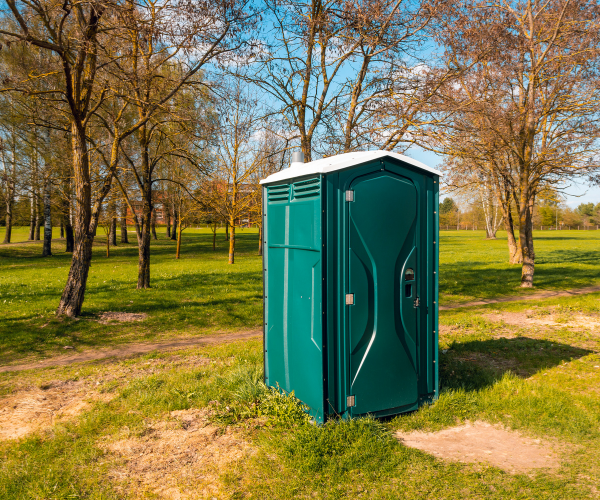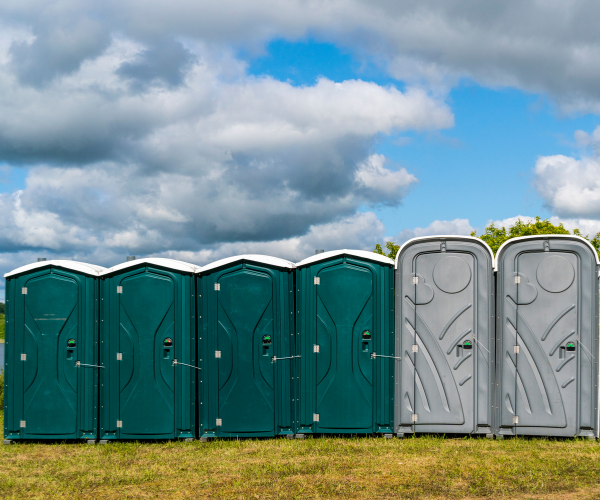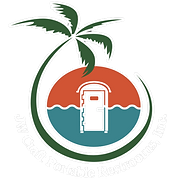Portable toilets offer numerous eco-friendly advantages that contribute significantly to sustainable practices. Firstly, these units reduce the need for permanent restroom facilities, thereby conserving resources involved in construction and renovation. They are typically designed to use minimal amounts of water, as most advanced models incorporate composting or chemical treatment that doesn't require water. This efficiency indirectly supports water conservation, particularly important in areas prone to drought or where water scarcity is an issue. Additionally, the use of portable toilets reduces the risks associated with untreated waste dispersal in the environment. By containing waste securely, these units prevent contamination of soil and water bodies, thereby protecting natural ecosystems and preserving the health of wildlife. The sanitary disposal of waste facilitated by portable toilets also curtails the spread of disease among humans and animals. Many service providers utilize eco-friendly cleaning agents that are less harmful to the environment compared to conventional chemicals. This proactive approach minimizes the environmental footprint of maintaining sanitation facilities. Furthermore, portable toilets align with sustainable event standards, making them ideal for outdoor events, construction sites, and residential projects seeking environmentally responsible solutions. The logistical efficiency of transporting and maintaining these toilets further underlines their eco-friendliness, as they can be relocated with minimal fuel consumption. Repeated use in various locations dilutes the overall carbon footprint associated with production, offering a long-term eco-friendly benefit. Embracing portable toilets is a positive step towards sustainable living, supporting initiatives aimed at reducing pollution and conserving precious natural resources.

Portable Toilet Rentals in Parkland, Florida
Call today for a free quote (239) 402-7239
Portable Toilet
Fast, Easy, & 100% Free To Get Started
Years of Trusted Service
With over 20 years of experience, our portable toilet company proudly serves Parkland. We are deeply rooted in the community, offering premium quality services that reflect our commitment to customer satisfaction.
Committed to Quality
Our commitment to quality ensures each portable toilet unit is maintained to the highest standards. We prioritize cleanliness and functionality, delivering a reliable service that our clients can trust.
Timely Delivery Guaranteed
We take pride in delivering portable toilet rentals swiftly. Thanks to our efficient logistics, your units arrive on time, fully prepared for any event or construction site needs.
Efficient Portable Toilet Rentals in Parkland
Call for a Free Quote Today
(239) 402-7239
In the heart of Parkland, Florida, our portable toilet rental company stands out as a leader in providing quality sanitation solutions. With a steadfast commitment to dependability and reliability, we have established ourselves as a locally owned business that deeply cares about the community. Our services are tailored to meet the needs of various events, from bustling construction sites to elegant weddings, lively parties, and vibrant festivals. We ensure that our units are always clean and ready for use, enhancing the convenience and comfort of your guests. Our coverage area extends beyond Parkland to include nearby communities, ensuring our exceptional service is accessible wherever you need it. Choose us for your next event and experience the ease and reliability we bring.


Our standard porta john rental units are durable and reliable for any commercial build site, housing development, public works project, or remodel job.Features include dome lighting, grated floors, and an “In-Use” locking mechanism for privacy and comfort. Regularly maintained, inspected, and cleaned by FusionSite at your location.

Developed as an alternative to full ADA-compliant restrooms, the Liberty is a spacious, wheelchair-accessible unit that can also be promoted as a family-sized restroom. Includes a patented flat-floor system for easy wheelchair access and maneuverability.Handrails, paper holder, and rotary latch are designed for simple, intuitive end-user operation.

Portable hand washing stations are essential for keeping your work site sanitary and clean. Features hands-free foot pumps, liquid soap, and paper towels.Perfect for job sites without water hookups, these units can handle hundreds of washes between services.
We Proudly Serve
Standard Portable Toilets
Our standard portable toilets provide clean and convenient sanitation solutions for JW Craft events in Florida.
High Rise Portable Toilets
High-rise portable toilets offer necessary convenience for construction sites in Parkland, ensuring worker satisfaction.
Restroom Trailers
At Parkland, JW Craft restroom trailers deliver premium comfort and style, the ideal choice for upscale events.
Roll off Dumpsters
Reliable roll-off dumpsters from JW Craft make waste management in Parkland a seamless process.
Septic Tank Cleaning
Efficient septic tank cleaning services by JW Craft ensure optimal performance and cleanliness in Florida.
Grease Trap Cleaning
Expert grease trap cleaning in Parkland guarantees hygiene and efficiency within your Florida kitchen operation.
Fencing & Barricades
Secure your site with robust fencing and barricades from JW Craft for projects across Florida.
Residential Storage
Parkland residents trust our residential storage solutions for secure and accessible space within Florida.
Parkland Portable Sanitation Solutions
Renting a portable toilet from us in Parkland couldn't be easier. From the comfort of your home or office, obtaining a quote is a simple and straightforward process. Our website is designed to be user-friendly, with a clearly marked 'Get A Quote' button. This button is conveniently located at various intervals on our pages, making it easy to access no matter where you navigate. Once clicked, you're taken to a quick form that requires basic information such as your first name, last name, phone number, and email. This seamless process ensures that your inquiry is submitted without a hitch. After submitting your form, expect a prompt response from our dedicated customer service team. Our representatives are trained to provide you with all the necessary details regarding your portable toilet rental requirements, including delivery times, setup, and any specific requests you might have. Delivery is scheduled to fit your timetable, ensuring your event or construction project operates smoothly. We understand the value of time, so we work tirelessly to minimize any waiting period. Our team coordinates with you to guarantee that the units are delivered promptly to your specified location within Parkland and neighboring areas, adhering to our mantra of efficiency and customer satisfaction. From request to delivery, our focus is on providing a hassle-free experience that exceeds your expectations. Whether you're hosting a small backyard gathering or a large outdoor festival, our streamlined process for renting portable toilets is designed to make your life easier. This focus on efficiency is what differentiates us from other service providers in Parkland.

In the vibrant community of Parkland, our portable toilets are more than just a necessity—they are a symbol of convenience and care. Nestled among picturesque landscapes, from the scenic grounds of Pine Trails Park to the excitement of the annual Parkland Farmers' Market, we provide units that enhance every occasion. Whether you're hosting a community event or exploring outdoor attractions, our services ensure cleanliness and comfort. Our portable toilet rentals are meticulously maintained and strategically placed to offer ease at every event. From bustling downtown festivals to serene parks and nature events, our dedication to ensuring a top-tier guest experience shines through. Residents and visitors alike trust us to provide reliable sanitation solutions that contribute to enjoyable and unforgettable experiences.
Unmatched in Parkland:Known for our dedication to excellence and community, we provide top-notch portable toilet rentals across Parkland. Our emphasis on prompt service and superior amenities distinguishes us from others in the region. Every unit is a testament to our commitment to quality and customer satisfaction.Community-Focused Services:We understand the unique charm of Parkland and are proud to offer services that enhance the local experience. Our portable toilets are more than functional—they're a nod to the quality expected by the Parkland community, ensuring every event remains seamless and worry-free.
Rapid and Reliable Solutions:Our company prides itself on offering fast and dependable portable toilet services in Parkland. When time is of the essence, our clients know they can rely on us to deliver on schedule, ensuring their events run smoothly.Excellence in Every Detail:From initial contact to setup and support, every aspect of our service is designed to prioritize your needs. We combine expert logistics with unparalleled dedication to meet and exceed your expectations, providing service that's unmatched in reliability.
Learn More About Portable Toilets in Parkland
Renting a portable toilet in Parkland is straightforward and designed to be as user-friendly as possible. Visitors to our website will find convenient 'Get A Quote' buttons spread throughout our pages, offering immediate access to our rental inquiry process. By clicking these buttons, you are directed to a simple form, where basic contact details such as first name, last name, phone number, and email are required. Submitting this form ensures that your request is prioritized by our dedicated service team. Our team then contacts you swiftly, providing all the necessary information to meet your specific requirements. This includes details regarding delivery schedules, pricing structures, and any customization options that may enhance your rental experience. We pride ourselves on a hassle-free process, ensuring that all our clients receive the services they need without undue delay. For those who prefer a more interactive approach, our customer service team is available by phone, ready to answer questions and guide you through the rental process. We aim to cater to all preferences, recognizing that each client has unique needs in planning their events.
Our commitment to providing exceptional portable toilet services is reflected in our reliable delivery timelines. Typically, once a rental agreement is finalized, the portable toilets can be delivered within 24 to 48 hours. This quick turnaround ensures our clients can move forward with their plans without unnecessary delays, helping their events proceed smoothly. We understand that each event or construction project has unique requirements and schedules. As such, our logistics team works closely with clients to coordinate delivery at the most convenient and appropriate times. Special arrangements can also be made for urgent requests, where quick deployment of units is essential. Our fleet is well maintained and continuously ready for immediate dispatch, ensuring we can uphold our promise of timely delivery consistently. Our dedicated team is adept at managing logistics and is committed to maintaining open communication with clients throughout the delivery process. For large events or projects requiring multiple units, we have the expertise and resources to ensure all units are delivered efficiently. Furthermore, our service doesn't end at delivery; we provide continued support to manage and maintain the units, ensuring sanitary and functional facilities for the duration of your rental period. This comprehensive approach not only meets but exceeds expectations, demonstrating our dedication to client satisfaction.
Yes, we are fully equipped to service a wide range of events and construction services. Whether you're orchestrating a large festival, a corporate event, a family reunion, or an elegant wedding, our extensive inventory has a solution to meet your needs. Our offerings range from luxury restroom trailers to practical porta potties, ensuring that your event is perfectly catered for. In addition to traditional portable restrooms, we also provide accessories such as roll-off dumpsters, secure fencing and barricades, holding tanks, ADA-compliant units, portable sinks, and hand sanitizer stations. Each of these components is carefully maintained to ensure the highest level of hygiene and efficiency. Our team works closely with event planners and construction managers to assess the specific requirements of your site and tailor our services accordingly. This ensures not only adequate sanitation facilities but also a seamless integration that enhances the overall experience of your guests or workers. We pride ourselves on our ability to adapt to any situation and our willingness to go above and beyond to ensure your event's success.

